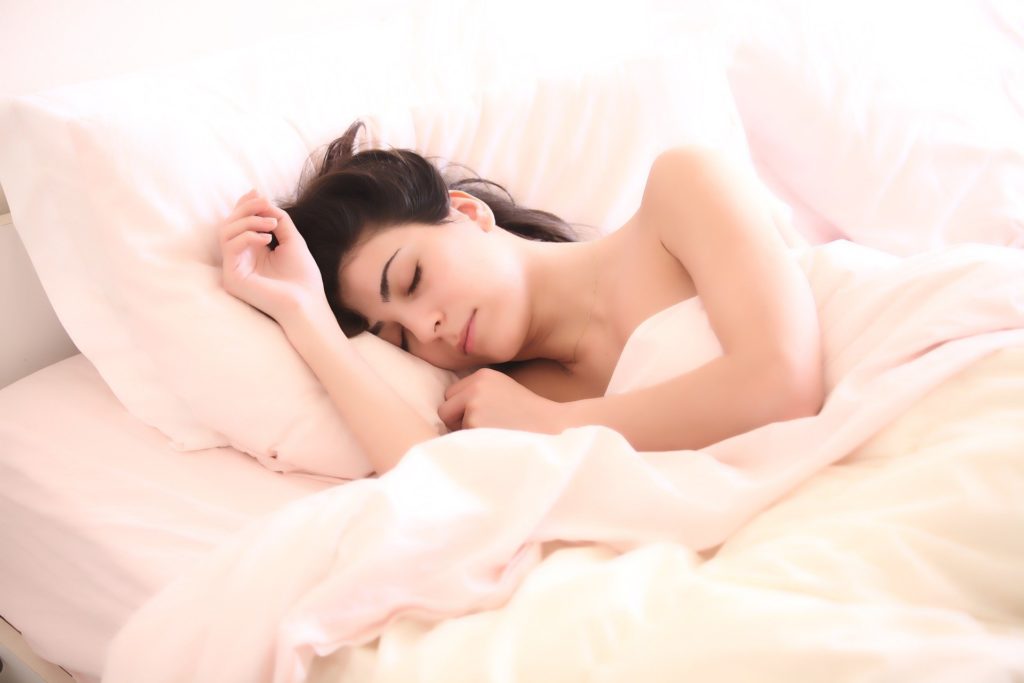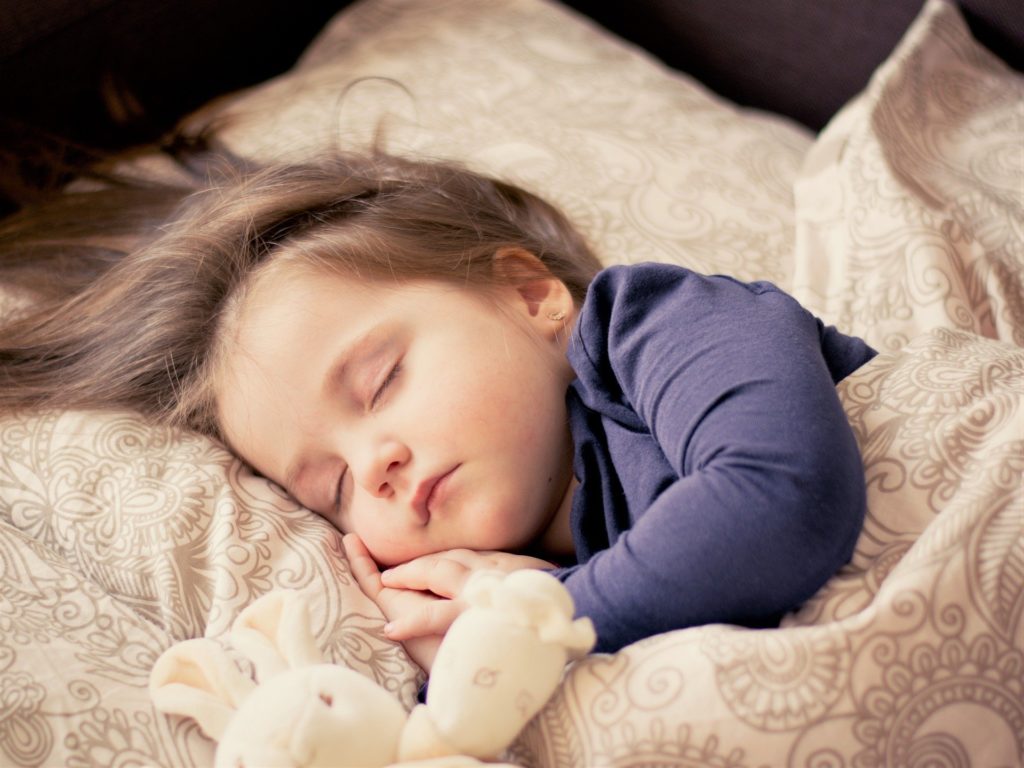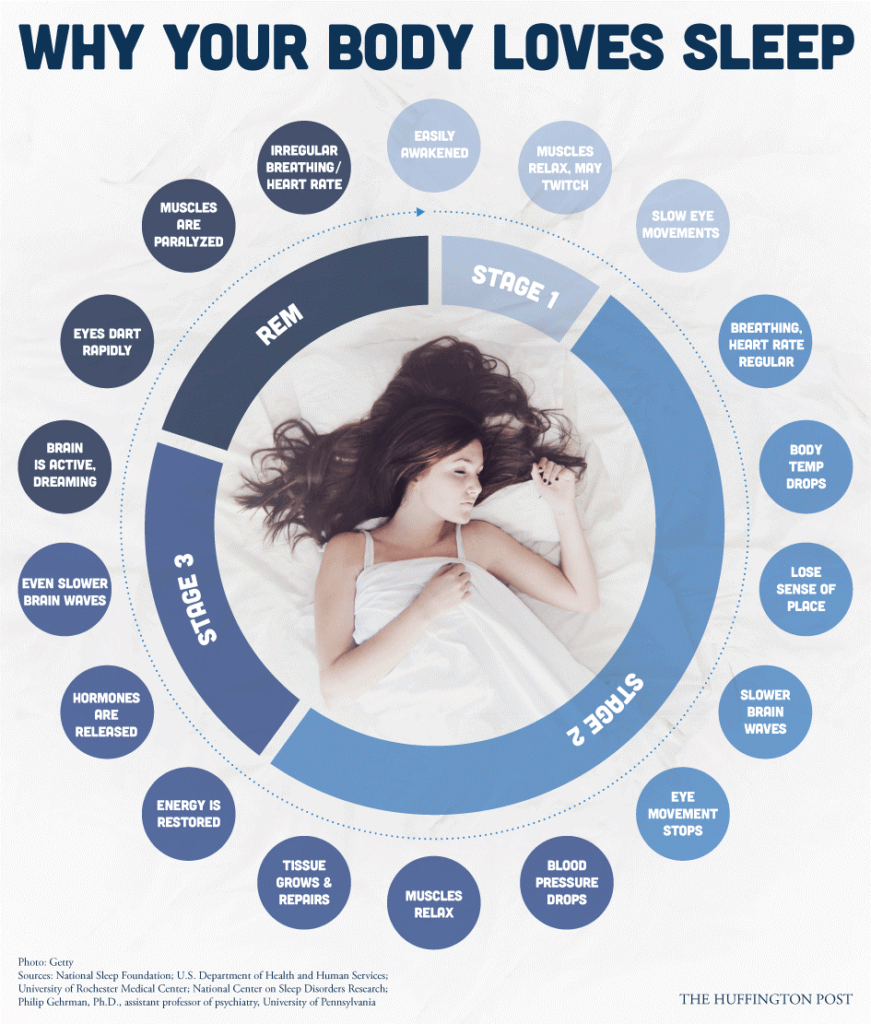
How to Get More & Better Sleep
We’ve all had nights, here and there, where no matter what we do we cannot get to sleep. It’s normal. What is not normal is struggling to get to sleep every night, using drugs or alcohol to try to get to sleep, or hoping the TV will help you fall asleep in the wee hours of the morning.
These are the indications of insomnia, which is a treatable disorder or dysfunction. We know that insomnia is the inability to sleep, yet it’s much more than that. It is considered habitual sleeplessness, meaning more than two nights without good sleep. Acute insomnia is associated with a few weeks of not sleeping, typically associated with a traumatic or highly stressful event. Chronic insomnia is the habitual lack of sleep for months or years.
Caffeine & Insomnia
Caffeine is a stimulant, which means it stimulates the nervous systems, the metabolism, as well as mental function. It takes twelve, yes that’s 12, hours for your body to process the caffeine you consume. For example – you consume 1 cup of coffee (average of 95mg of caffeine) at 8am, by 8pm half of that caffeine (47.5mg) is still there in your system stimulating function. Well no wonder you can’t get to sleep.
Certain medications, like antidepressants, water pills (diuretics), high blood pressure and high cholesterol medications, and allergy medicines have a stimulating effect on the body much like caffeine and can keep you up. They also interfere with normal hormone production which can throw the whole system and all of its cycles out of balance. If you suspect your medications talk with your doctor about trying supplements or herbal remedies to help or even changing medications to help.

Anxiety & Insomnia
Most adults have had some trouble sleeping because they feel worried or nervous, but for some it’s a pattern that interferes with sleep on a regular basis. When this happens for many nights (or many months), you might start to feel anxiousness, dread, or panic at just the prospect of not sleeping. This is how anxiety and insomnia can feed each other and become a cycle that should be interrupted through treatment. There are cognitive and mind-body techniques that help people with anxiety settle into sleep, and overall healthy sleep practices that can improve sleep for many people with anxiety and insomnia. Anxiety symptoms that can lead to insomnia include:
- Tension
- Getting caught up in thoughts about past events
- Excessive worrying about future events
- Feeling overwhelmed by responsibilities
- A general feeling of being revved up or overstimulated

Insomnia & Lifestyle
Insomnia can be triggered or perpetuated by your behaviors and sleep patterns. Unhealthy lifestyles and sleep habits can create insomnia on their own (without any underlying psychiatric or medical problem), or they can make insomnia caused by another problem worse. Examples of how specific lifestyles and sleep habits can lead to insomnia are:
- You work at home in the evenings. This can make it hard to unwind, and it can also make you feel preoccupied when it comes time to sleep. The light from your computer could also make your brain more alert.
- You take naps (even if they are short) in the afternoon. Short naps can be helpful for some people, but for others they make it difficult to fall asleep at night.
- You sometimes sleep in later to make up for lost sleep. This can confuse your body’s clock and make it difficult to fall asleep again the following night.
- You are a shift worker (meaning that you work irregular hours). Non-traditional hours can confuse your body’s clock, especially if you are trying to sleep during the day, or if your schedule changes periodically.
- You regularly use stimulants to wake up and get through your day.
Mother Jai’s Remedies
Chamomile Tea – chamomile tea soothing to the nervous system and helps you feel relaxed and ready to sleep. Use at least 1hour before bed for best results.
Relax & Sleep Tea – a blend of chamomile, lavender, and hops. Deliciously calming and soothing.
Relax & Sleep Oil– organic sunflower oil with blue chamomile, Valerian, and roman chamomile essential oils. Apply to chest or feet to calm the body and mind for a deep, restful sleep.

Herbal Tea Blend – 4oz Bag
Herbal remedies to use instead of over-the-counter chemicals.
Need More Sleep?
We all know sleep is an absolute necessity for living, not just feeling well. So, to help you not only get more sleep, but also better sleep, I’ve put together multiple techniques that are known to induce relaxation in the body and practices that help quiet the mind. With these easy techniques, you’ll be sleeping hard and dreaming strong in no time, just try it.
The average person needs 7 hours of sleep every night, but because we are all so different the range is between 5 and 10 hours. So, a big part of getting better sleep is to understand yourself. This is done by taking time to understand your sleeping habits. Before you attempt any changes take time to observe your habits, taking notes if need be, to get an idea of what you are doing before bed and how well you are sleeping.
A sleep journal can be just as important as a dream journal in helping you to understand yourself. I suggest taking it with you to bed so you can easily write in it as you go to bed and wake in the morning. List your activities that are common for you before bed and list all of the activities you do in your bed. After about a week of this, go back through your journal and review what you have written. You can get an idea of what you need to work with by answering these simple questions:
- What are the patterns or habits that you notice?
- Why is your bed being used for activities besides sleeping and sex?
- What can you change to improve your bedtime habits?
- How many hours are you sleeping most nights?
- Are you sleeping hard and remember dreaming?
Now that you’ve spent some time getting to know yourself better and have developed an understanding of your habits, now you can change them.

Some Supplements Can Help Bring Sleep
- Melatonin is a hormone that helps regulate the sleep/wake cycle, an internal pacemaker that controls the timing and our drive for sleep. It causes drowsiness, lowers body temperature, and puts the body into sleep mode.
- Warm milk. You can put a tasty spin on your grandmother’s natural insomnia remedy by sipping warm milk before bed. Almond milk is an excellent source of calcium, which helps the brain make melatonin.
- Sleepy-time snacks. The best sleep-inducing foods include a combination of protein and carbohydrates, a light snack of half a banana with a tablespoon of peanut butter, or a whole wheat cracker with some cheese. Eat one of these snacks about 30 minutes before hitting the hay.
- Magnesium apparently plays a key role with sleep. Research has shown that even a marginal lack of it can prevent the brain from settling down at night. Good sources include green leafy vegetables, wheat germ, pumpkin seeds, and almonds.
- Valerian root. This medicinal herb has been used to treat sleep problems since ancient times. Research on the effectiveness of valerian for insomnia is mixed. It can take a few weeks for it to take effect. Talk to your doctor before taking valerian and follow label directions.
- Chamomile flowers. When consumed in a tea or light infusion they are a gentle sedative with strong calming, pain relief, and anti-inflammatory properties. Stronger dilutions have stronger and longer lasting effects.
- Lavender flowers. As a tea, it is a light sedative for those with minor stress interfering with sleep.
- Kava Kava root. Caution must be used, in large doses and with continued use Kava can cause liver failure. In small amounts with foods and other supplements it can help reduce anxiety and its associated insomnia.
- 5-HTP is a derivative of the amino acid tryptophan. It is used to boost serotonin in the body. 5-HTP is also the precursor of melatonin, which regulates sleep cycles.
- Eleuthero (Siberian) ginseng. Studies suggest that his herb (Eleutherococcus senticosus) can help enhance mental activity as well as physical endurance.
- Coenzyme Q10. This vital nutrient is involved in cellular energy production throughout the body.
- Ashwagandha. This Ayurvedic herb is prized for its ability to help the body deal with stress.
- Cordyceps. This traditional Chinese medicinal mushroom may help fight fatigue and boost energy levels.

Essential Oils to Help You Sleep
Lavender: Most people are aware that lavender is somehow related to sleep, but what most people don’t know is that this has been studied extensively and its effectiveness is more than just an Old Wives Tale.
Vetiver: distilled from the roots of the plant. It’s rich and earthy smelling, and helps the brain “shut-off” for the night. Try mixing it with “lighter” oil, such as lavender or roman chamomile.
Roman Chamomile: known for is calming, soothing, and relaxing properties. Simply smelling the oil has a calming effect, which can help you feel relaxed and more prepared for sleep.
German (Blue) Chamomile: is a very strong sedative, almost narcotic when undiluted. This can be diffused into the air or sprayed on to bedding before bed.
Bergamot: citrus fruit and the oil is cold-pressed from the rind or peel. It’s bright, yet calming at the same time.
Marjoram: wonderful for soothing muscles and joints, but it also excels in creating peaceful sleep.

Relaxing Techniques for Better Sleep
Before bed is a great way to wind down, calm the mind, and prepare for sleep.
- Deep breathing. Close your eyes, and try taking deep, slow breaths, making each breath even deeper than the last.
- Progressive muscle relaxation. Starting with your toes, tense all the muscles as tightly as you can, then completely relax. Work your way up from your feet to the top of your head.
- Visualizing a peaceful, restful place. Close your eyes and imagine a place or activity that is calming and peaceful for you. Concentrate on how relaxed this place or activity makes you feel.
- Rubbing or massaging the soles of your feet. Using fingertips and thumbs, rub lotion into the bottom of your feet. Using as much pressure as is comfortable and possible. Massaging in circles in the bottom of the foot releases large amounts of tension. If you cannot reach with your hands, use a broom handle laid across in front of you and rub the bottoms of your feet, with/without lotion or socks, on the handle, gently rolling it under your foot back and forth.



